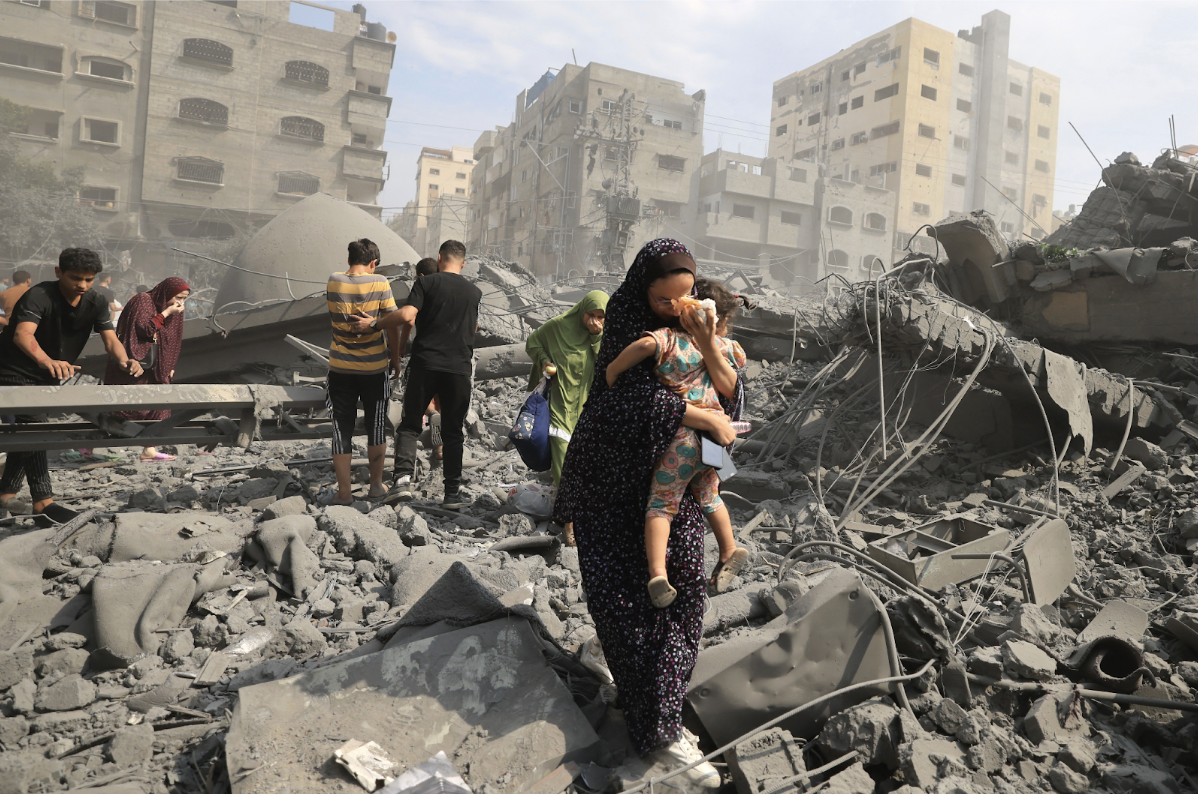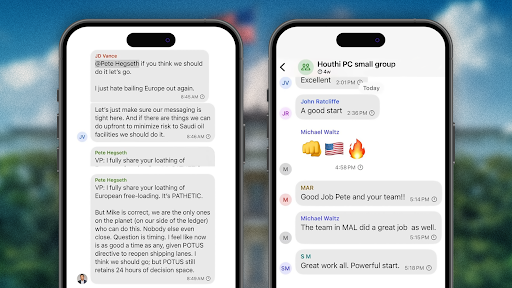Since 1948, Palestine and Israel have fought over deep-rooted conflicts that have led to humanitarian crises, large death tolls, as well as massive groups of Palestinians being forced to flee their homes.
On October 7th, Israel suffered from an attack performed by Palestine’s Islamic resistance movement and terrorist group, Hamas. The attack caused 1,200 deaths and more than 6,900 wounded individuals and 239 people are currently being held hostage by Hamas. Since then, the death toll on both the Palestinian and Israeli sides has only increased and so many lives have been destroyed (CNN.com).
After WWI, the international organization, League of Nations placed Palestine, formally part of the Ottoman Empire, under British control in 1918. British control supported the establishment of a sacred Jewish Home in Palestine which was considered an ancient Jewish homeland by Zionist leaders. The State of Israel, formerly part of Palestine, was established in 1948 and Jewish immigration increased exponentially. Palestine was partitioned into two independent states, the State of Israel and the Arab State. In years after, Israel started capturing additional Palestinian territory which was not authorized by the Partition Plan initiated by the United Nations Organization. More than half of the Palestinians were expelled and fled from their homes ending up in refugee camps all around the West Bank, Gaza Strip, and nearby countries. This was referred to as the Nakba- catastrophe by the Palestinians (United Nations).
Israel declared war known as the Six-Day War in June of 1967 in which an additional half a million Palestinians living in the Gaza Strip, were forced to flee. This conflict was fought between Israel and Arab states including Egypt and Syria over the occupation of Gaza. Israel won and continued to occupy the Arab lands including the West Bank and Gaza Strip. In 1974, the United Nations recognized the Palestine Liberation Organization as the sole established representative group of the Palestinian people (United Nations).
Years later in 1987, the Palestinians revolted against Israeli occupation known as the First Intifada (uprising), this led to the signing of the Interim Oslo Accords by Israel, the United States, and the Palestine Liberation Organization. Peace started to settle over the two clashing parties and Palestine recognized Israel, Palestinian Authority was given government control over parts of the West Bank and Gaza Strip. However, the remaining issues failed to be resolved and Israel seized Palestinian land and transferred its population to illegal settlements in occupied Palestinian territory. The Second Intifada in 2000 started and Palestine bombed Israel, Israel built the West Bank Separation Wall, much of it inside Palestinian territory, taking land and restricting freedom of movement (United Nations).
The International Court of Justice decided that the wall was illegal and in 2005, Israel withdrew troops and settlers from Gaza. Hamas, the terrorist group, performed an armed takeover and Israel imposed a Locate on Gaza which continued to cause unethical crisis and Palestinian resistance. The Security Council demanded that Israel seize illegal settlement activity but their settlements continued to expand. Today, 43% of the Palestinians do not support either Hamas or Fatah priorly known as the Palestine Liberation Organization, 31% support Hamas, and 21% support Fatah which means the majority of Palestinians are opposed to Hamas and their wrongdoings (TheHill.com).
History teacher Ms. Vander Molen added to the conversation, “What makes the situation even more delicate is that each party involved has foundational religious and cultural ties to the area. This has been a long-established and historically complicated conflict which has unfortunately erupted in extreme violence as well as protests and aggressive behavior around the world; including the United States. While this might not be the first time war has broken out between Israel and Palestine, this current conflict underscores the enduring challenges to find stability and resolutions.” The issues Palestine and Israel face have been going on for so long and have impacted all parts of the world. Ms. Vander Molen states, “It is important to study history to understand the conflict and possibly find solutions that might foster peace.”
After the attacks on October 7th performed by Hamas, Israel declared war and bombarded the Gaza Strip by both land and air killing 11,000 Palestinians and injuring many more. The border crossing from Gaza into Israel is closed as well as the Rafa crossing formerly allowing immigration into Egypt, giving Palestinians in need have nowhere to go (CNBCnews.com).
Israel declared a total siege on the Gaza Strip cutting off food, water, and electricity supply. These electricity shortages cut off cell phone connections for the Palestinians which is needed to communicate and gain this pressing knowledge surrounding their own country (Dawn.com). Satellite photos on Saturday, November 11th show that Israel has gone further into the Gaza Strip territory and continues to obliterate the lands (APnews.com).
International Humanitarian Laws protect hospitals in times of war, one of many war rules that, if broken, may result in countries being charged with war crimes. In the Gaza Strip, one of the largest hospitals, al-Shifa, was targeted in the bombardment caused by Israel. In this catastrophe specifically, more than a dozen were killed, and al-Shifa’s cardiac ward was destroyed. (APnews.com).
Director of al-Shifa Hospital, Muhammad Abu Salmiya, declared many intensive care unit patients dead, due to the lack of oxygen and electricity to keep their treatments going. He states that if these horrific events continue to occur, all ICU patients will die. The building continues to be in lockdown by Israeli forces who allegedly claim that Hamas fighters were using the facilities to take cover. Lives continue to be at stake while Israeli forces desperately try to find the group responsible for the irreversible damage caused to their country, with no verified evidence (aljazeera.com).
According to the World Health Organization, a total of 36 health facilities including 22 hospitals have been destroyed since the war began on October 7th, and only a handful are now still operational, continuing to risk the lives of those who need dire treatment (BBC.com).
Sophomore at Ramapo, Lana Jepsen, states, “I am deeply saddened by the effects of the bombings on both sides, many people have died and more are devastated by the impacts.”
Innocent people have died and continue to die due to the entrenched argument over rightful land between Israel and Palestine. The fate of this crisis does not seem to get any brighter as the state of war and violent bombing on both sides is not close to finishing anytime soon. Keep those affected and families of directly impacted individuals in your thoughts as we watch this war, hoping to see the end close in the future.






